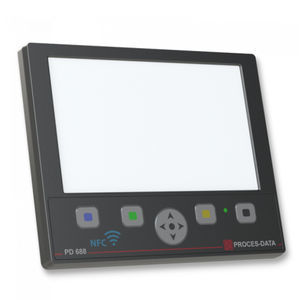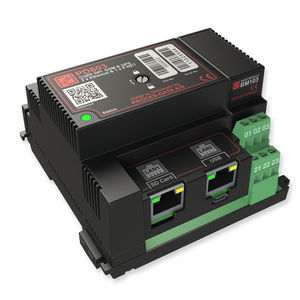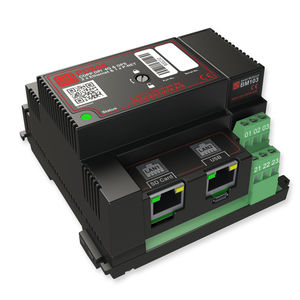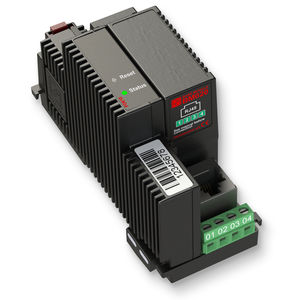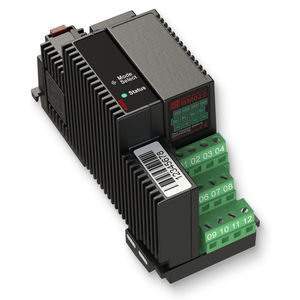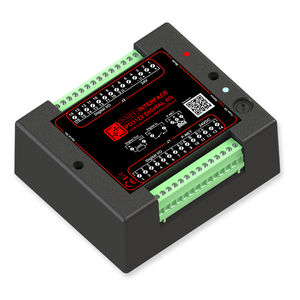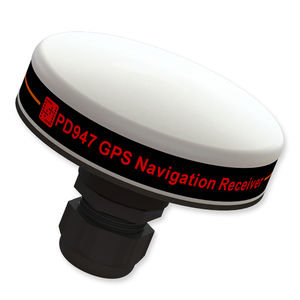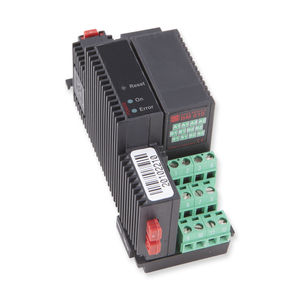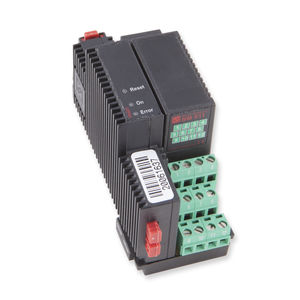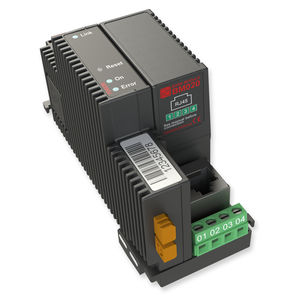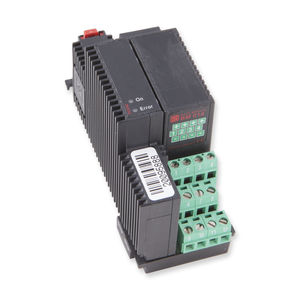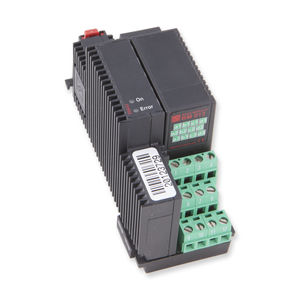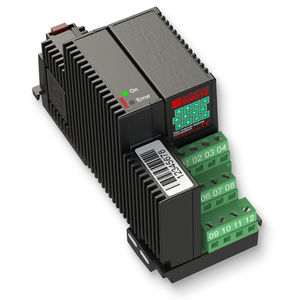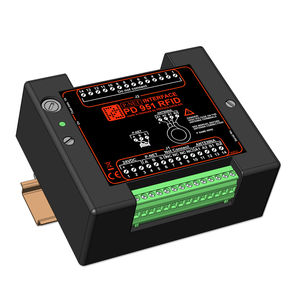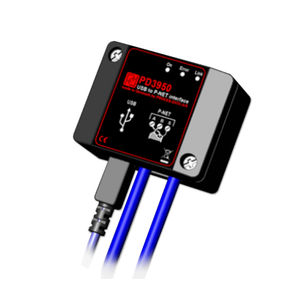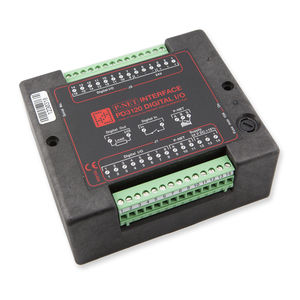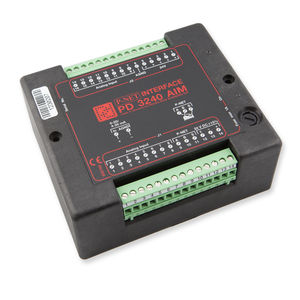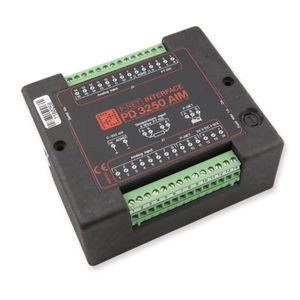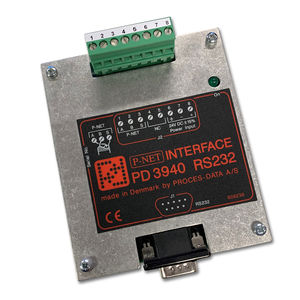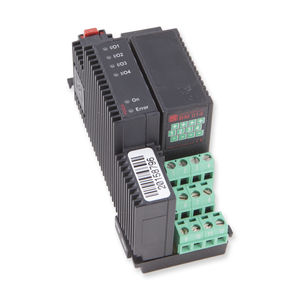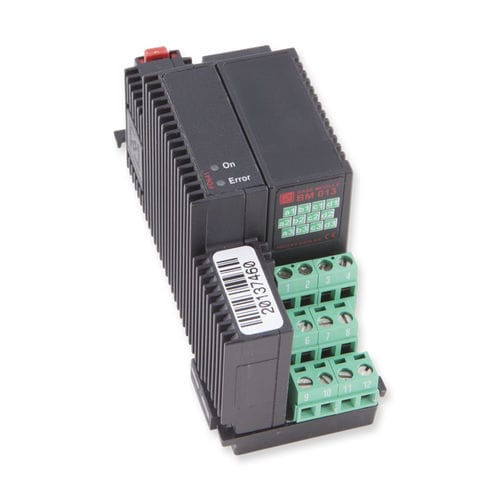
RS-485 interface module PD641power


Add to favorites
Compare this product
Characteristics
- Bus
- RS-485
- Other characteristics
- power
Description
Analogue Interface Module, 3-ch. input each of which can be configured for either Pt100 or Pt1000 sensor types
• Temperature input Pt100 or Pt1000
• All channels can be independently configured for either Pt100 or Pt1000 sensor types.
• The analogue input register shows the temperature in °C.
• Advanced internal self testing
• Wide power supply range
• Wide temperature range
• 2 LEDs for power On and Error indication
The PD 641 is an analogue input module with three temperature input channels, each of which can be configured for either Pt100 or Pt1000 sensor types.
It is used with a BM 013 Base module.
Power Supply DC: nom. 24.0 V, min. 18.0 V, max. 32.0 V
Ripple: max. 5%
Power consumption @ 24V DC
Operation: max. 25 mA
Current at power up: max. 60 mA
Analogue input (Ch. 1 – 3)
Signal type: Pt100 / Pt1000
Connection: 4-wire / 2-wire
Update time: Fixed 2.4 s
Input temperature range: Pt100 -100 °C → +600 °C, Pt1000 -100 °C → +200 °C
Ambient temperature coefficient Tc: max. ± 15 ppm / °C
Ambient temperature influence (ΔT): Tc x (Tambient – 20) x (Tsensor + 273)
Pt-100 Data (excluding sensor)
Calibration error: @ Tamb. 20 °C max. ± 0.1 °C
Resolution: typ. 0.05 °C
Measuring current: max. 500 µA
Pt-1000 Data (excluding sensor)
Calibration error: @ Tamb. 20 °C max. ± 0.2 °C
Resolution: typ. 0.2 °C
Measuring current: max. 50 µA
Filter for analogue input signal
Type: 4th order low pass
Time constant: configurable 3.0 s – 50.0 s
Gain error: max. ± 0.1 %
Catalogs
No catalogs are available for this product.
See all of PROCES-DATA A/S‘s catalogsOther PROCES-DATA A/S products
INDUSTRIAL CONTROLLERS AND I/O MODULES
Related Searches
- Display module
- Industrial display module
- I O module
- Digital master module
- Analog master module
- Digital I O module
- LED display module
- Control display module
- Analog I O module
- Fieldbus I O module
- Programmable display module
- LCD HMI
- Serial I/O
- Graphic display module
- Interface module
- Communication module
- Serial I O module
- RFID reader-writer
- Ethernet I O module
- Display HMI
*Prices are pre-tax. They exclude delivery charges and customs duties and do not include additional charges for installation or activation options. Prices are indicative only and may vary by country, with changes to the cost of raw materials and exchange rates.


